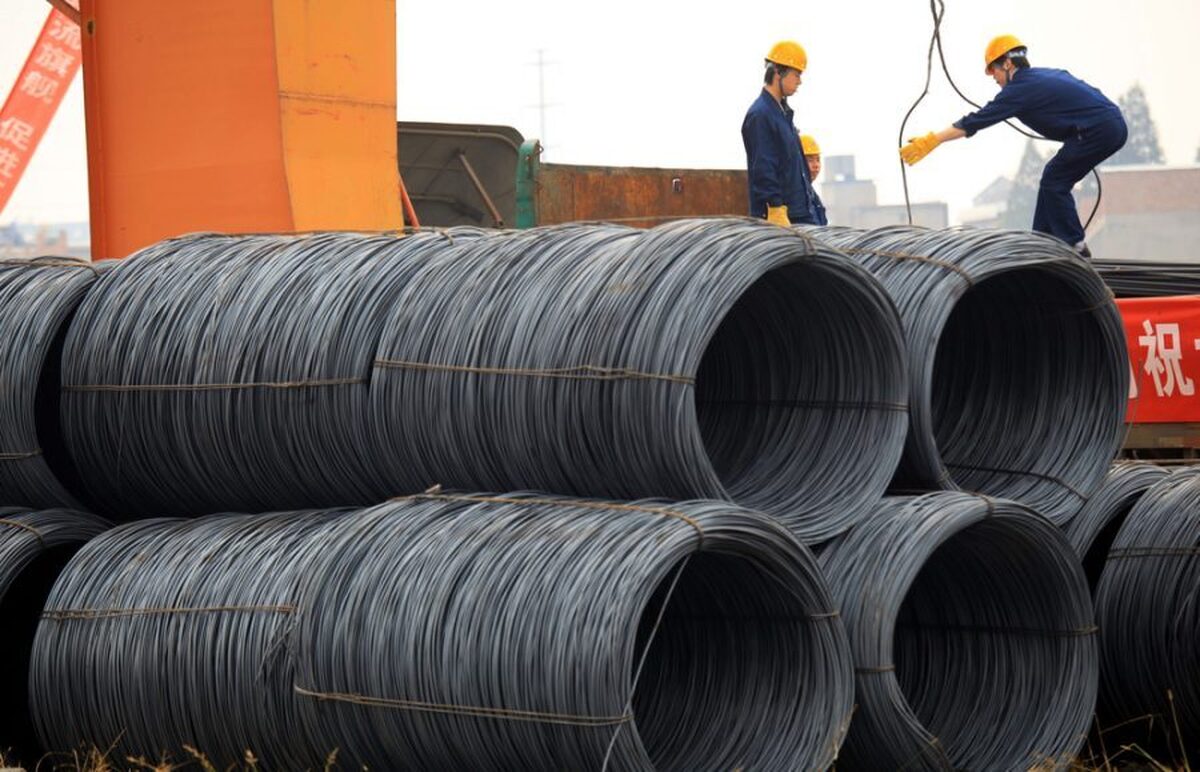
China's steel PMI falls to record low in February

The steel PMI fell by 10.5 points from the previous month to 36.6, the lowest level in the history of the index that has been compiled since January 2016 by the China steel logistics professionals committee (CSLPC). The sharp drop in steel PMI was in line with the official manufacturing sector PMI crashing to a record low of 35.7 in February from 50 in January, as the manufacturing sector production and demand for products slowed. A reading below 50 signals a sector's contraction, with above 50 showing its expansion.
The steel production sub-index fell by 15.4 points from a month earlier to 31.3, while the new domestic orders sub-index slipped by 11.7 points at 32.7.
Demand for steel collapsed following the impact of the coronavirus outbreak amid delays in resuming work at downstream companies. Demand for steel from overseas markets also reduced significantly, said the CSLPC. "It is expected that in March, as the epidemic situation continues to be controlled, the construction sites of enterprises will start to resume work, demand will accelerate and the relaxation of logistics will also help steel mills to produce and sell," it added.
Several steel mills shut blast furnaces and carried out maintenance last month to reduce operating costs and avoid adding to unsold inventories. Mills also sharply reduced purchases of raw materials such as iron ore, coking coal and scrap while depleting existing stocks, the CSLPC survey showed. Some mills have been selling part of their long-term contracted iron ore cargoes in spot markets over the past few days, according to China market participants.
Finished product inventories increased at mills, with the inventory sub-index in February rising by 12 points from a month earlier to 57.7.
While most construction sites were inactive in February, they are expected to resume work at a faster pace this month. With most of the construction companies understocked with steel products, "a wave of demand release for steel" could happen this month, said the CSLPC.
By Prasenjit Bhattacharya


Trump weighs using $2 billion in CHIPS Act funding for critical minerals

Electra converts debt, launches $30M raise to jumpstart stalled cobalt refinery

Codelco cuts 2025 copper forecast after El Teniente mine collapse

Barrick’s Reko Diq in line for $410M ADB backing

Abcourt readies Sleeping Giant mill to pour first gold since 2014

SQM boosts lithium supply plans as prices flick higher

Nevada army depot to serve as base for first US strategic minerals stockpile

Pan American locks in $2.1B takeover of MAG Silver

Viridis unveils 200Mt initial reserve for Brazil rare earth project

Kyrgyzstan kicks off underground gold mining at Kumtor

Kyrgyzstan kicks off underground gold mining at Kumtor

KoBold Metals granted lithium exploration rights in Congo

Freeport Indonesia to wrap up Gresik plant repairs by early September

Energy Fuels soars on Vulcan Elements partnership

Northern Dynasty sticks to proposal in battle to lift Pebble mine veto

Giustra-backed mining firm teams up with informal miners in Colombia

Critical Metals signs agreement to supply rare earth to US government-funded facility

China extends rare earth controls to imported material

Galan Lithium proceeds with $13M financing for Argentina project

Kyrgyzstan kicks off underground gold mining at Kumtor

Freeport Indonesia to wrap up Gresik plant repairs by early September

Energy Fuels soars on Vulcan Elements partnership

Northern Dynasty sticks to proposal in battle to lift Pebble mine veto

Giustra-backed mining firm teams up with informal miners in Colombia

Critical Metals signs agreement to supply rare earth to US government-funded facility

China extends rare earth controls to imported material

Galan Lithium proceeds with $13M financing for Argentina project

Silver price touches $39 as market weighs rate cut outlook


















